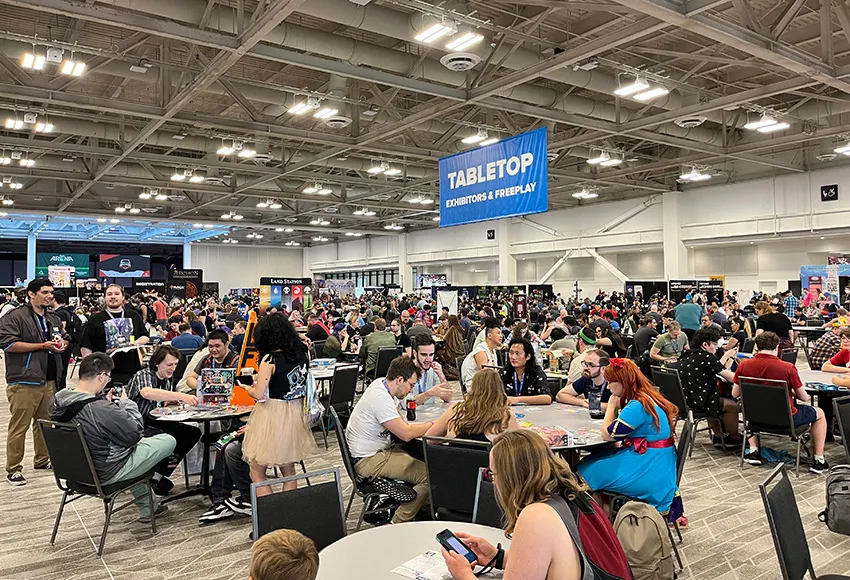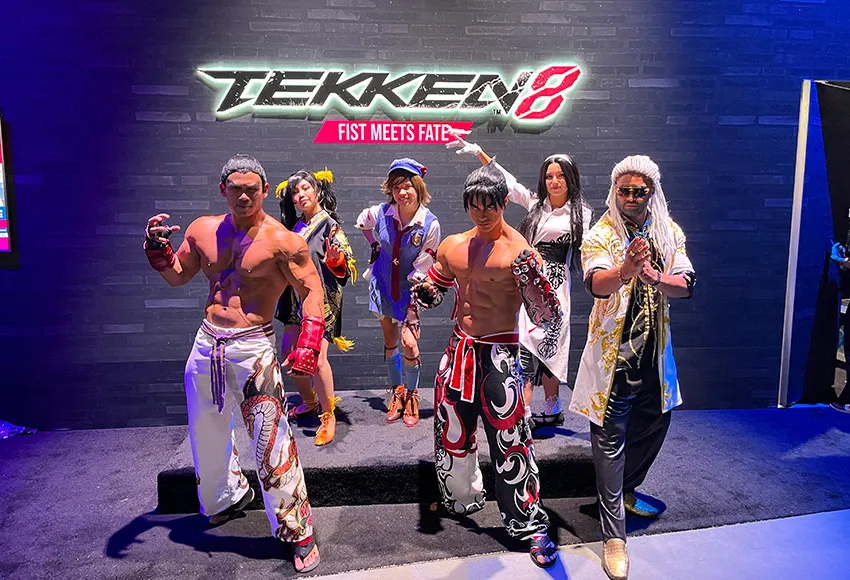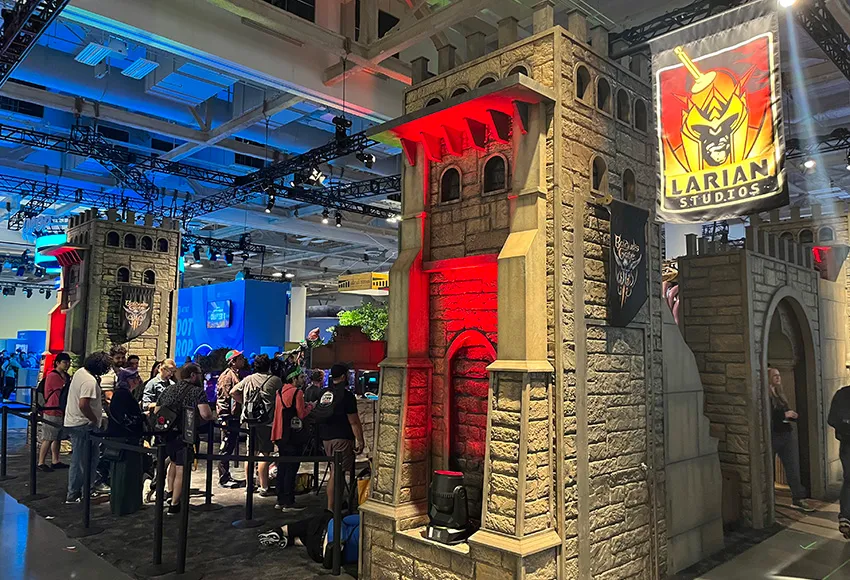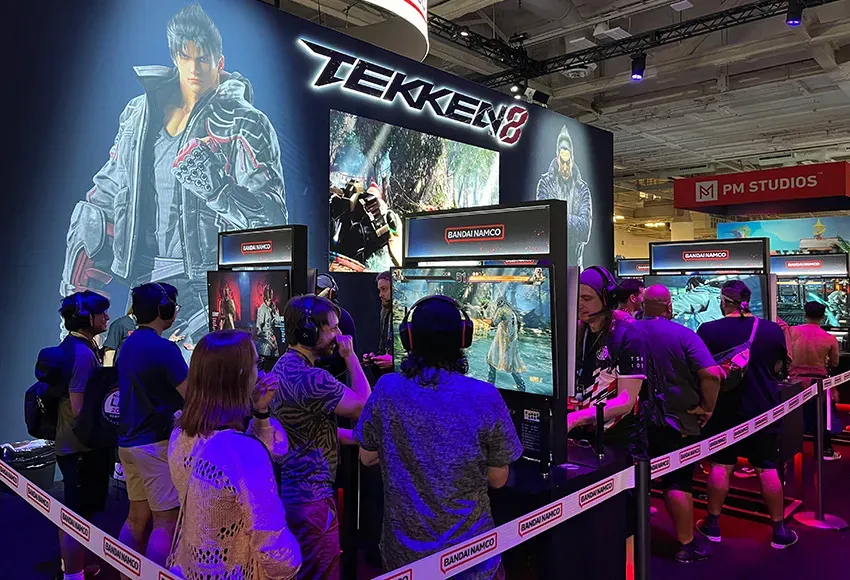The nebulous "gaming community" doesn't have a great reputation online, partly because of the bile that wells up at the slightest hint of inclusivity, or indeed even the mildest criticism of certain beloved franchises.
You might then expect that caustic undercurrent to spill into a real-world gaming convention like PAX West, but you would be wrong. The event was a pleasant surprise for a first-timer, and it had a lot to offer Queer gamers and devs alike.
Gaming conventions differ from others in the general realm of geekdom, like Comic Con, in that they focus specifically on playable media. That means there isn't as much of an artist alley to peruse for on-site commissions, nor is there the same magnitude of celebrity presence – at least, not from celebrities more widely known beyond gaming circles.
Still, the towering new Summit building was alive with activity, even as a portion of the convention took place in the Arch edifice nearby. That "split" made it somewhat more of a hassle to experience all the games being showcased, but the buildings were ultimately more walkable than during Emerald City Comic Con, perhaps as a result of being less crowded. That's an impressive feat for an event that boasts over 120,000 annual attendees on its website.

Free play
In lieu of an artist alley, a good portion of the Arch's second floor was dedicated instead to "free play" tables, where guests could bust out a card or board game and invite strangers to join them. There were also sign-ups for quick sessions of tabletop roleplaying games, like the emphatically Queer Thirsty Sword Lesbians.
Magic: The Gathering and Dungeons & Dragons were both prominent, of course, with probably the largest booths. There was even a live D&D session on the main stage, a revival of the fan favorite Acquisitions Incorporated, featuring big names like PAX founder and CEO Jerry "Tycho" Holkins, WWE star Xavier Woods, and lead D&D developers Jeremy Crawford and Christopher Perkins.

On the show floors themselves, there were the heavy hitters like Bandai Namco with the upcoming fighting game Tekken 8, Devolver Digital with Wizard with a Gun–themed carnival games, and Bethesda Studios with a hands-on preview of its open-world spacefaring game Starfield.
Getting to try out games before they are released is exciting, but the lines for the bigger ones were the longest, with some guests reporting wait times of up to three hours just to play for 30 minutes or so and be ushered out.
I quickly learned that some games seemed to exhibit better than others. For example, the most important elements of a fighting game like Tekken 8 are apparent from the moment you pick up the controller. The same goes for platformers and many shooters.
Games that rely more on an overarching narrative, meanwhile – best enjoyed at a slower pace – keep much of their hands hidden, since one either has to take their time reading text boxes and exploring the environment for more subtle story elements, or rush through to pack in as much as possible.
The smaller booths, meanwhile, had shorter lines, more lenient time restrictions, and often the actual developers of the games themselves. In truth, that was the closest thing to an artist alley at PAX West. It's a rare opportunity to be able to speak with the people responsible for the game in your hands while you're playing it.

Safe and diverse
On the show floor, I spoke with a certain convention staff member as they were acting as a "traffic cone" for a crowd. They said they attended their first PAX West years ago, and had been supremely impressed at how safe and diverse the convention managed to be. They chalked it up to it taking place in Seattle, partly, but also to the efforts of Take This, a nonprofit working to improve mental health in the gaming community and industry.
The nonprofit had an "AFK Room," a quiet space where con-goers could rest and recharge. It also hosted nine panels over the course of the weekend.
The "Attention Deficit Hyperactivity Dragons" panel featured neurodivergent dungeon masters and players to talk about how tabletop roleplaying games had improved their lives, and could better accommodate people with ADHD.
"It Builds Character(s): TTRPGs and Socio-Emotional Learning" brought on guests from the mental health nonprofits Game to Grow and Games Unbound, as well as Washington Secretary of State Steve Hobbs, to discuss the mental health applications of tabletop roleplaying games.
In each case, many of the panelists would stick around after the session had ended to answer questions. Between that, the show floor, and the many fan meetups in a dedicated community room, the whole event felt intimate in ways even smaller conventions I've attended couldn't match.


